Traveling in Japan with a Baby: Essentials & Parenting Tips for Expats
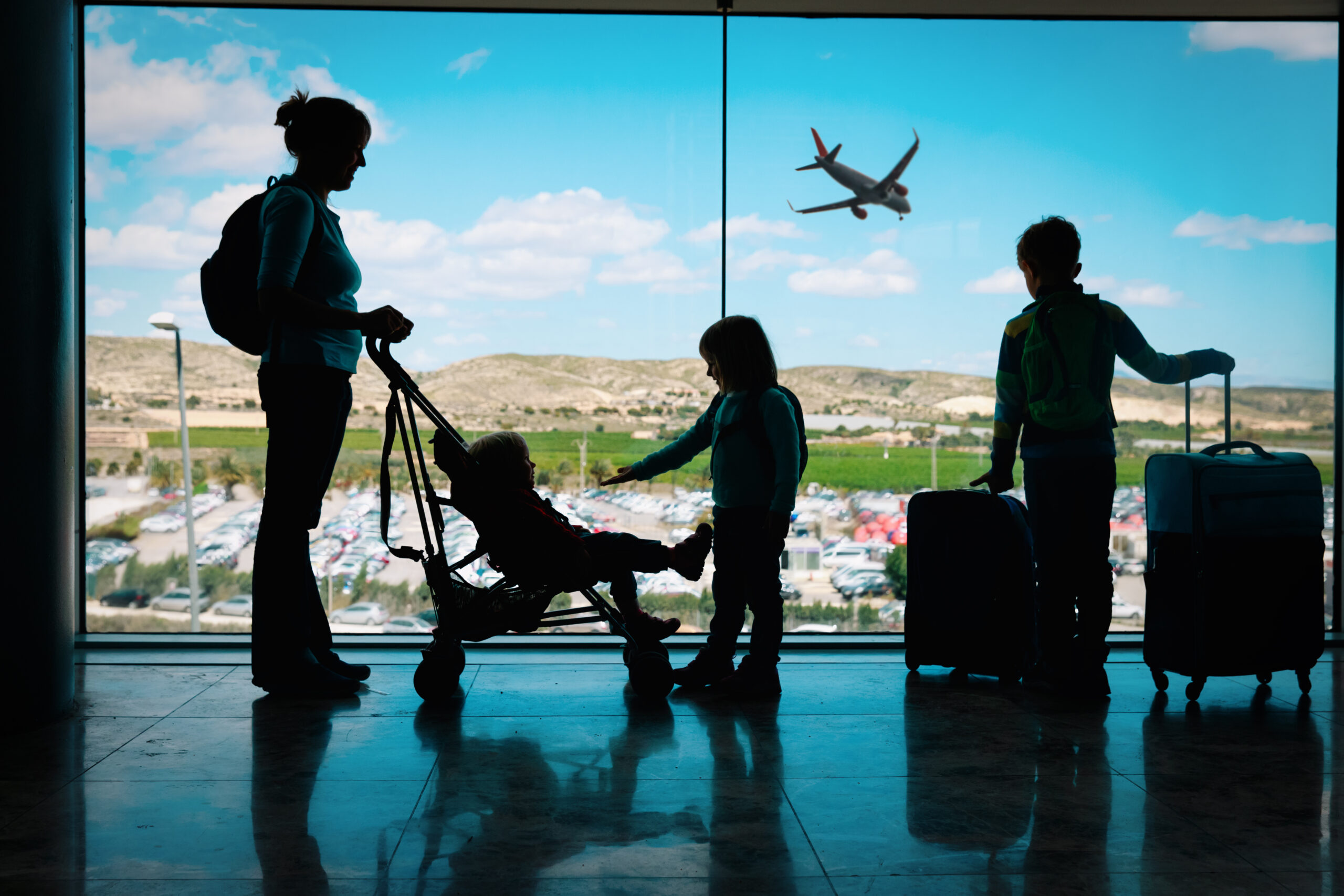
Traveling in Japan with a baby can feel overwhelming, especially for non-Japanese speaking expats. You may wonder: Can I take a stroller on trains? Are there baby-friendly hotels? What should I pack?
This comprehensive guide answers these real concerns and offers essential tips on baby gear, transportation, accommodations, and parenting in Japan’s unique cultural environment. Feel confident as you explore Japan safely, comfortably, and with peace of mind.
Why Japan Is Surprisingly Baby-Friendly for Expats
Traveling or living in Japan with a baby might seem daunting at first, especially for non-Japanese speakers. However, Japan offers a surprisingly baby-friendly environment that many expats quickly come to appreciate. From clean streets and well-maintained public facilities to the deeply ingrained cultural respect for families and children, Japan creates an atmosphere where parents can feel safe and supported.
Cleanliness, Safety, and Infrastructure
One of the standout features is Japan’s high standard of cleanliness and safety. Public spaces, parks, and transportation systems are kept immaculate, which is essential when you have a young child. Facilities such as baby changing rooms and nursing rooms are commonly available in department stores, train stations, and major tourist spots, making outings with babies much more manageable.
Cultural Attitudes Toward Babies and Families
Japan also has a unique cultural approach to parenting. You will notice that people, including strangers, are generally respectful and considerate towards babies and parents. For example, it’s common to see priority seating for parents on trains and people giving space to strollers. This cultural mindset fosters a welcoming atmosphere for families, helping expat parents feel accepted and supported even when navigating language barriers.
Supportive Public Facilities and Services
In addition, Japan has excellent infrastructure tailored for families. This includes elevators in almost every train station, wide sidewalks for strollers, and baby-friendly attractions like museums, parks, and shopping centers. Many public places offer baby gear rental services, which can save you from carrying bulky items on your travels.
Preparing for Your Japan Trip with a Baby: Essential Pre-Travel Tips
Traveling to Japan with a baby requires thoughtful preparation to ensure a smooth and enjoyable experience. This section provides essential tips to help you plan effectively.
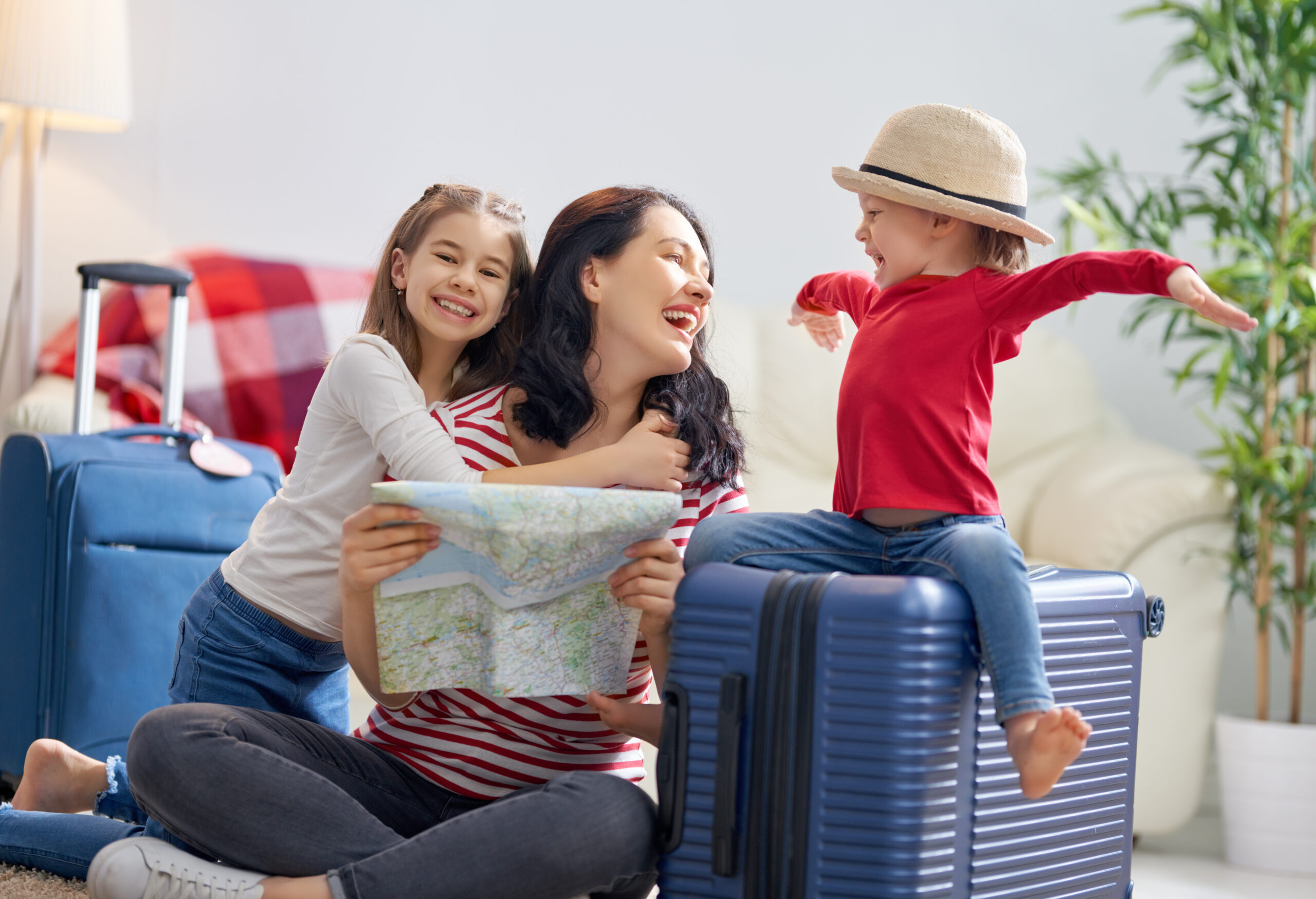
Travel Documents and Insurance
Before embarking on your journey, ensure that all necessary travel documents are in order. This includes valid passports for all family members and any required visas. It’s advisable to check the specific entry requirements for Japan, as they can vary depending on your nationality.
In addition to travel documents, securing comprehensive travel insurance is crucial. Opt for a policy that covers medical expenses, trip cancellations, and lost luggage. Given the importance of healthcare, especially when traveling with a baby, having insurance that includes pediatric care and emergency medical evacuation is highly recommended.
Vaccination and Medical Preparation
Consult with your pediatrician well in advance of your trip to discuss any recommended vaccinations for your baby. While Japan has high standards of healthcare, it’s important to ensure that your child is up-to-date on routine immunizations.
Pack a well-organized medical kit that includes essential items such as prescription medications, over-the-counter remedies, baby-safe pain relievers, and any specific items your child may need. Familiarize yourself with the location of nearby hospitals or clinics in the areas you’ll be visiting, and consider carrying a translation card with key medical phrases in Japanese to facilitate communication in case of emergencies.
Planning an Itinerary with Baby-Friendly Destinations
When planning your itinerary, focus on destinations that are known for being baby-friendly. Look for attractions that offer amenities like stroller rentals, nursing rooms, and family restrooms. Cities like Tokyo and Kyoto are renowned for their family-friendly facilities and attractions.
To avoid overwhelming your baby, pace your itinerary to allow for regular breaks and downtime. Incorporate visits to parks, aquariums, and interactive museums that cater to young children. Remember, a relaxed schedule can lead to a more enjoyable experience for both you and your baby.
How to Avoid Overpacking Your Schedule
It’s tempting to include numerous attractions in your itinerary, but overpacking your schedule can lead to stress and fatigue. Prioritize quality over quantity by selecting a few key attractions each day and allowing ample time for rest and meals. This approach ensures that both you and your baby remain comfortable and enjoy the trip to the fullest.
Cultural Etiquette to Know Before You Go
Understanding Japanese cultural norms can enhance your travel experience. While Japan is welcoming to families, being aware of certain etiquette can help you navigate social situations smoothly.
For instance, public breastfeeding is acceptable in Japan, but it’s customary to use a cover to maintain modesty. Additionally, while strollers are generally accepted, some older establishments may have limited space, so a lightweight, foldable stroller is advisable.
Being mindful of these cultural nuances will help you feel more at ease and respectful during your travels in Japan.
Must-Have Baby Gear for Traveling in Japan
Traveling in Japan with a baby requires thoughtful preparation to ensure comfort and convenience. This section outlines essential baby gear to bring from home, items you can easily purchase or rent in Japan, and a packing checklist to help you stay organized.
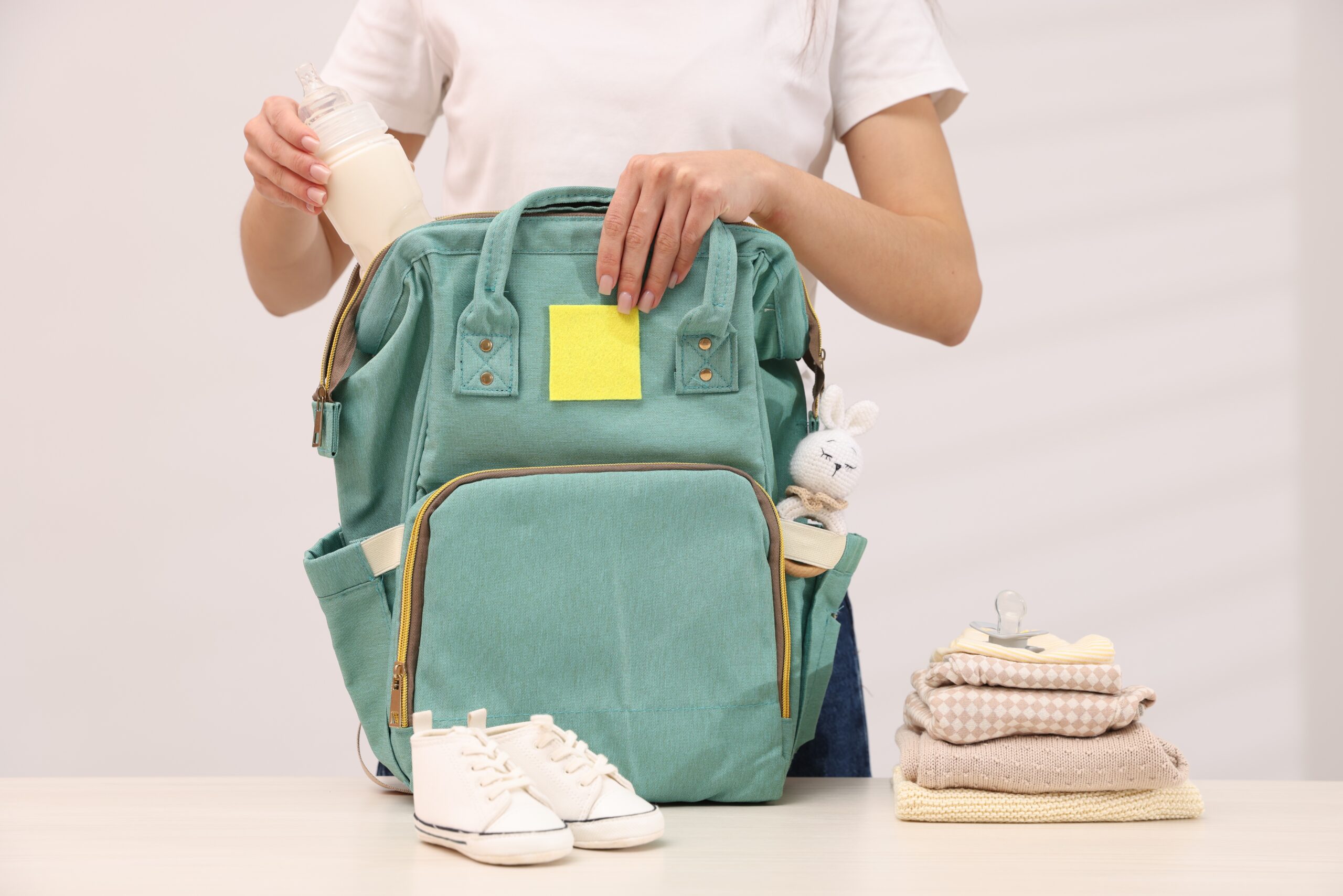
Baby Gear Essentials You Should Bring from Home
While Japan offers many baby products, certain items are best brought from home to ensure familiarity and comfort for your baby:
- Car Seat: Bringing your own car seat can be cumbersome. A more practical option is to reserve one in advance directly from your car rental agency in Japan, which is a standard service they provide.
- Stroller: A lightweight, foldable stroller is ideal for navigating Japan’s public transportation system and crowded areas.
- Baby Carrier: A comfortable carrier can be invaluable for crowded places and when elevators are unavailable.
- Diapers and Wipes: While available in Japan, bringing a supply from home can be convenient, especially during the initial days.
- Formula and Baby Food: If your baby uses specific brands or types, it’s best to bring these with you, as availability may vary.
What You Can Easily Buy or Rent in Japan
Japan has a wide range of baby products available for purchase or rent:
- Diapers and Wipes: Available at drugstores like Matsumoto Kiyoshi and supermarkets.
- Baby Food: Brands like WAKODO and Pigeon offer a variety of baby food options.
- Baby Gear Rentals: Services like Babycal offer stroller rentals.
Baby Gear Rental Services in Japan
Renting baby gear can lighten your load and provide convenience during your stay:
- Babycal: Operated by JR East, let you reserve strollers (and even child seats or wheelchairs at some locations) at over 240 train stations, airport counters, or commercial hubs across Japan. Rentals range from 1 hour up to 7 days, making it highly convenient for travelers—no bulky gear to carry, and everything is picked up directly where you need it.
- Other Rental Services: Depending on your destination, local services may offer additional rental options. It’s advisable to research and book in advance to ensure availability.
Packing Checklist for Baby Travel in Japan
To stay organized and ensure you have all necessary items, consider the following checklist:
- Essentials: Passport, travel insurance, and any required visas.
- Health and Safety: Medications, first aid kit, and baby-safe sunscreen.
- Feeding: Bottles, formula, snacks, and a portable bottle warmer.
- Clothing: Weather-appropriate outfits, including layers for varying temperatures.
- Entertainment: Small toys, books, or electronic devices to keep your baby entertained during travel.
By preparing thoughtfully and utilizing available resources, you can ensure a comfortable and enjoyable trip to Japan with your baby.
Navigating Public Transportation in Japan with a Baby
Japan’s public transportation system is known for its punctuality and cleanliness—but when traveling with a baby, it’s the thoughtful infrastructure and expected etiquette that truly make it family-friendly. Knowing how to navigate these systems confidently will help you and your little one enjoy stress-free travel.
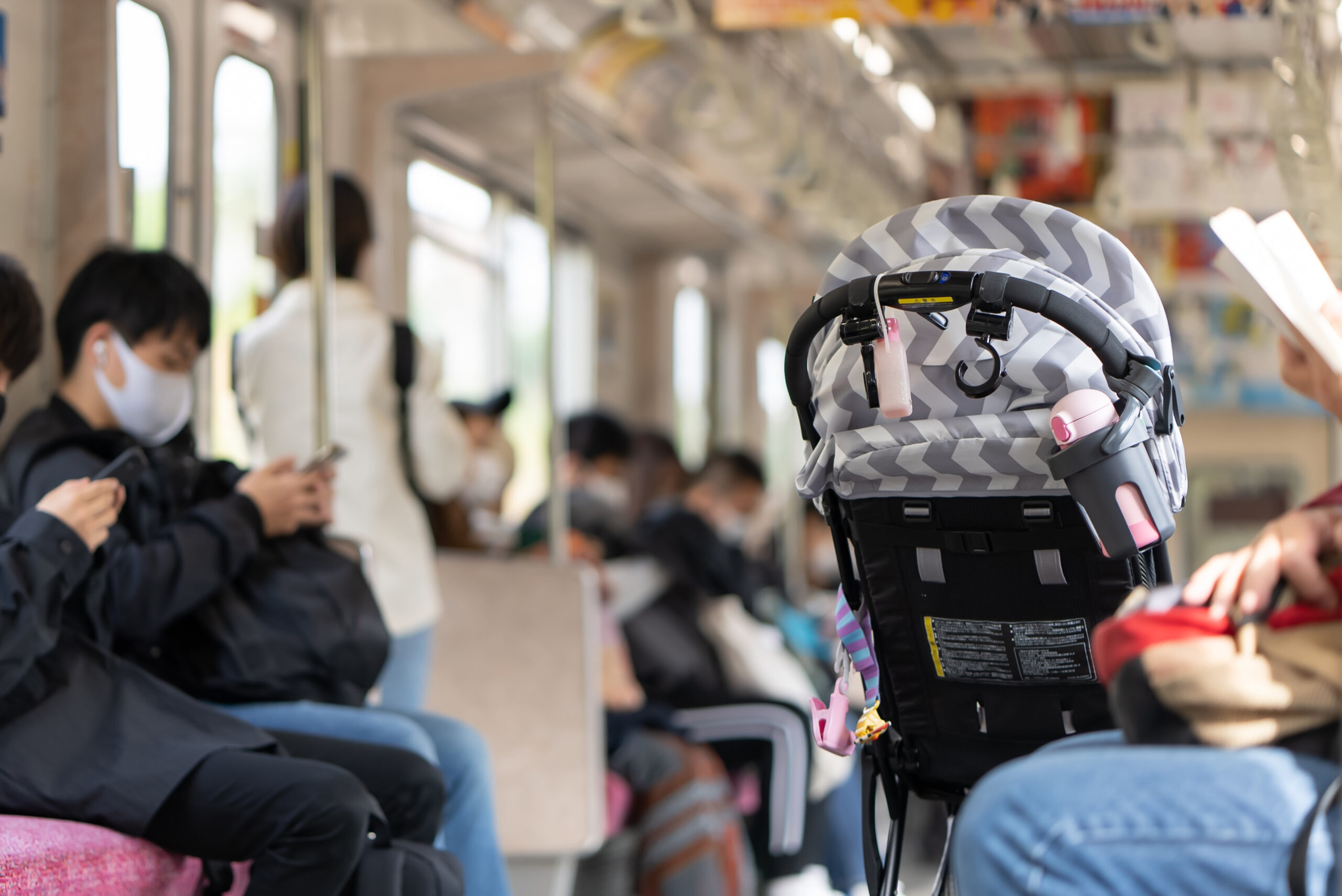
Taking Trains and Subways with a Stroller
Most major train stations in cities like Tokyo, Osaka, and Kyoto are equipped with at least one elevator or accessible ramp, so using a stroller is entirely possible. Many expat parents recommend a compact, umbrella-style stroller since it easily fits through ticket gates and in elevators, though larger models are acceptable if they don’t exceed typical wheelchair dimensions.
To avoid crowds, it’s wise to skip peak commuting hours (usually 7–9 AM and 5–7 PM), and position yourself near the first or last train cars, which often feature priority seating and more space for strollers. Navigating these stations may require patience—sometimes elevator routes are indirect, or staff assistance is needed—but fellow travelers are usually understanding when you politely ask or wait your turn.
Using Taxis and Ride‑Sharing Options
In Japan, taxis don’t legally require baby seats, and many drivers are accustomed to placing folded strollers or luggage in their trunks. If you prefer an extra-safe ride, several private transfer services allow you to request a car seat in advance—ideal for airport pickups or long-distance travel.
Air Travel Tips for Domestic Flights in Japan
When flying domestically in Japan, airlines are generally very accommodating to families. You can typically check your stroller for free, often right at the boarding gate. If you have a compact, foldable stroller, you may be able to bring it onboard as carry-on luggage, but be sure to confirm the airline’s size limits in advance. Families with infants are also usually invited to pre-board, giving you extra time to get settled. While there are restrictions on liquids, baby formula, milk, and food are typically exempt, though you may be asked to present them for inspection at security.
Public Transportation Etiquette with Babies
Japanese transit etiquette is rooted in respect and consideration. Priority seats are provided for families; it’s polite to kindly say “sumimasen” (excuse me) when requesting a seat and “arigatō” (thank you) when someone helps. In crowded stations or on escalators, folding your stroller or switching to a baby carrier helps others move freely and keeps you safe. Also, children should refrain from loud playing or running, and parents should gather small trash to avoid leaving mess—a mark of respect for shared spaces.
Finding Baby-Friendly Accommodations Across Japan
Finding the right place to stay is crucial for traveling with a baby in Japan. From hotel chains to ryokan and vacation rentals, here’s a practical overview of accommodation types suited to families.
Types of Accommodations Suitable for Families
Japan offers a range of family-friendly lodging options:
Hotels, Ryokans, and Vacation Rentals
Mainstream family-oriented hotels in Tokyo and Osaka, such as Keio Plaza and Grand Nikko Tokyo Daiba, provide amenities like free stays for young children, cribs, strollers, and child menus. If you’re seeking traditional culture, select ryokans—like Hakone’s Washintei Hougetsu or Izu’s Sora no Ue—that welcome babies, offering bath chairs, diapers, and private onsen access.
For more space and a homier feel, vacation rentals or apartment-style stays—such as Mimaru properties across Tokyo and Osaka—are ideal choices. These often include kitchens, laundry, and multiple beds, making them a favorite among expat families.
Features to Look for in Baby-Friendly Lodging
When choosing accommodation, keep an eye out for these features that ease life with a baby:
- Cribs and child-proofing: Many hotels offer complimentary cribs or high chairs when requested. Apartment-style lodgings like Mimaru often go even further—providing bottle warmers, bed rails, and children’s pajamas.
- Family-size rooms or connecting suites: Japanese hotel rooms can be compact, so opting for larger family rooms or connecting suites can make a big difference. Listings should note maximum guest counts due to strict safety regulations.
- On-site amenities: Priority goes to properties with nursing rooms, diaper-changing stations, coin laundry, microwaves, and hot-water dispensers—commonly found in family-friendly hotels.
- Kid-friendly dining options: Buffet breakfasts with children’s menus or nearby eateries with toddler meals add valuable convenience.
By selecting the right type of lodging and prioritizing baby-focused amenities, you can ensure smooth, comfortable stays during your travels across Japan.
Daily Life in Japan with a Baby: Cultural Norms and Practical Parenting Tips
Life in Japan with a baby involves more than sightseeing—it’s an opportunity to embrace a new rhythm, combining cultural understanding with hands-on parenting in daily routines.
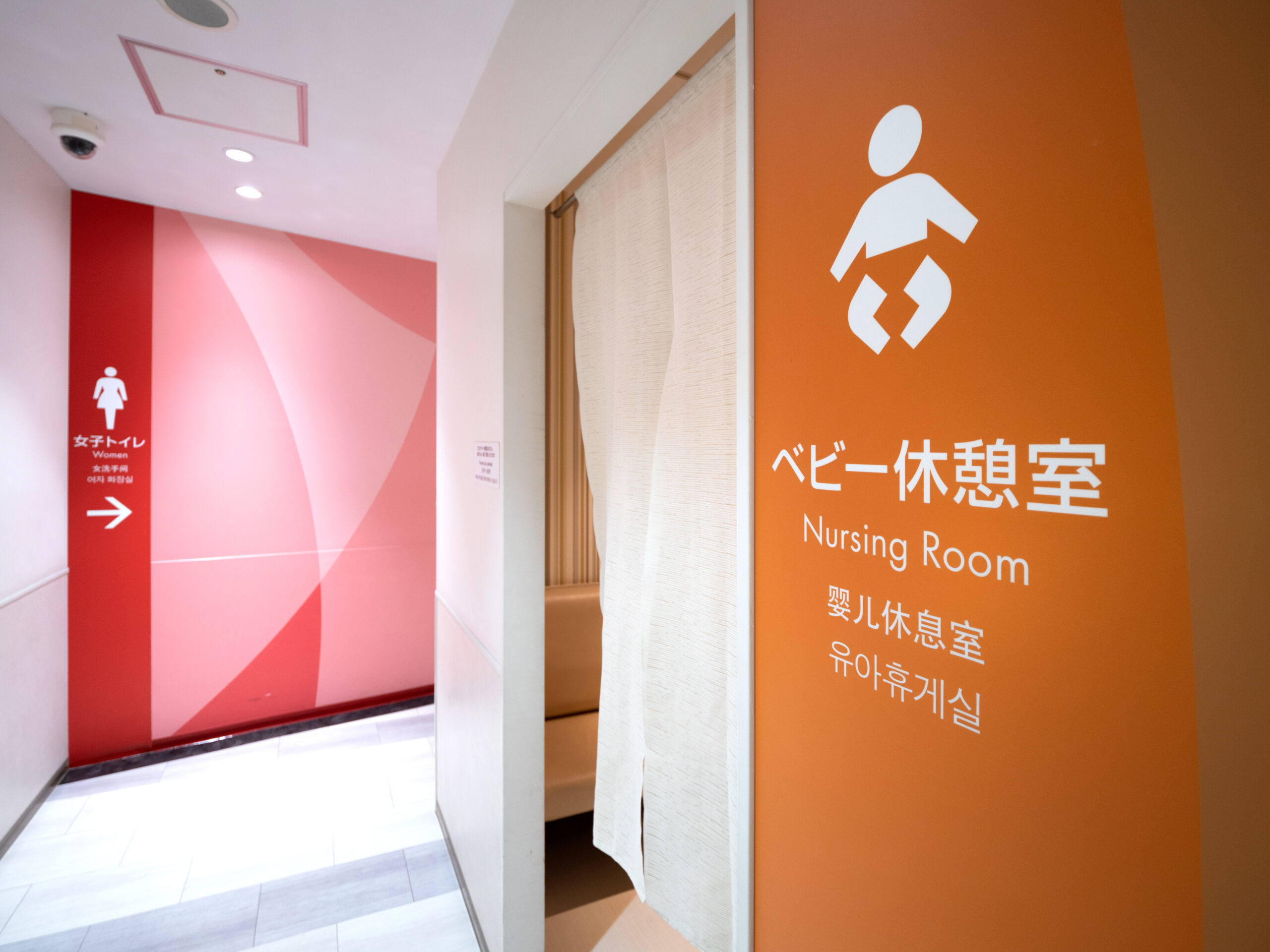
Breastfeeding and Baby Feeding in Public
Breastfeeding in public is generally acceptable, yet modesty is valued. Many moms use nursing rooms or discreet covers. Large department stores, museums, and major train stations feature private, clean nursing rooms, where you can feed comfortably and change diapers. If you breastfeed on a park bench or café, carrying a light cover is thoughtful, though not mandatory. Cafés and library spaces sometimes allow it, especially in family-friendly areas.
Diaper Changing Facilities and Nursing Rooms
Japan excels in offering baby-specific facilities. From Shinjuku to Osaka, you’ll find diaper-changing tables and nursing rooms in train stations, shopping malls, parks, and department stores like Takashimaya or Daimaru. These spaces are meticulously clean, well-equipped, and often include seating for parents, diaper bins, and hot water. Remember that smaller venues—especially local eateries—may not have facilities, so plan ahead and carry a changing pad and wipes.
Shopping for Baby Supplies and Groceries
Access to baby products is easy and convenient. Supermarkets (Aeon, Seiyu) and drugstore chains (Matsumoto Kiyoshi, Welcia) stock diapers, wipes, formula, baby food, and even seasonal snacks—one of the “essentials” in your travel checklist. Many stores feature point-of-sale systems with English options and staff who assist in locating items. Urban neighborhoods like Daikanyama (Tokyo) offer boutique baby supply stores with organic or specialty items. For expats, online shopping via Amazon Japan or Rakuten—with same-day delivery in big cities—adds ease to resupply without heavy shopping trips.
Interacting with Locals and Social Norms
Japanese social etiquette emphasizes being quiet and respectful—keep your baby entertained quietly. Voices on public transit and public spaces are expected to stay low. If your baby cries, simply smile and apologize with a gentle “すみません” (sumimasen). Locals appreciate considerate behavior.
You’ll also notice the “mamachari” culture—many parents ride bikes with baby seats. This is a symbol of everyday family life and indicates how normalized parenting is here. Don’t hesitate to ask moms using these bikes for recommendations or guidance—they’re often very kind.
Many municipalities host English-friendly baby and parenting groups—for example, in Tokyo’s Setagaya or Yokohama. Drop-in events at community centers welcome international parents and foster meaningful support networks for you and your little one.
Baby Healthcare and Emergency Services in Japan
Finding Pediatricians and Clinics for Expats
In Japan, every expectant mother who registers her pregnancy at the local municipal office receives a Maternal and Child Health Handbook (母子健康手帳 / Boshi Kenko Techo), regardless of nationality. While using the handbook is not legally mandatory, it is strongly recommended. It is an essential tool for tracking your child’s growth, vaccination history, and developmental checkups, and also serves as an educational guide for parents.
Once you enroll your baby in Japan’s public health insurance system, you can apply for an Infant Medical Care Certificate (乳幼児医療証 / Nyuyoji Iryosho) from your local municipality. This certificate makes your child eligible for subsidized medical care and periodic health checkups. The level of subsidy, such as the co-payment amount and the age of eligibility, varies by municipality.
For English-speaking support, numerous clinics catering to the international community are available in major cities. For those living elsewhere, the Ministry of Health, Labour and Welfare provides an online directory of medical facilities that offer foreign-language support. It is advisable to register with a local clinic soon after your arrival, bringing your child’s Maternal and Child Health Handbook with you.
Emergency Numbers and How to Seek Help
In serious emergencies—such as difficulty breathing or injuries—dial 119 for ambulance or fire services (and 110 for police). Ambulance rides are free, though hospital treatment afterward may require insurance or co-payments. If calling from a hotel or public venue, staff can often assist in dialing and guiding paramedics to your location—particularly important due to language barriers. For clarity, carry your baby’s health insurance card and Maternal and Child Health Handbook (母子健康手帳 / Boshi Kenko Techo) when calling or visiting a hospital.
This might also be helpful.
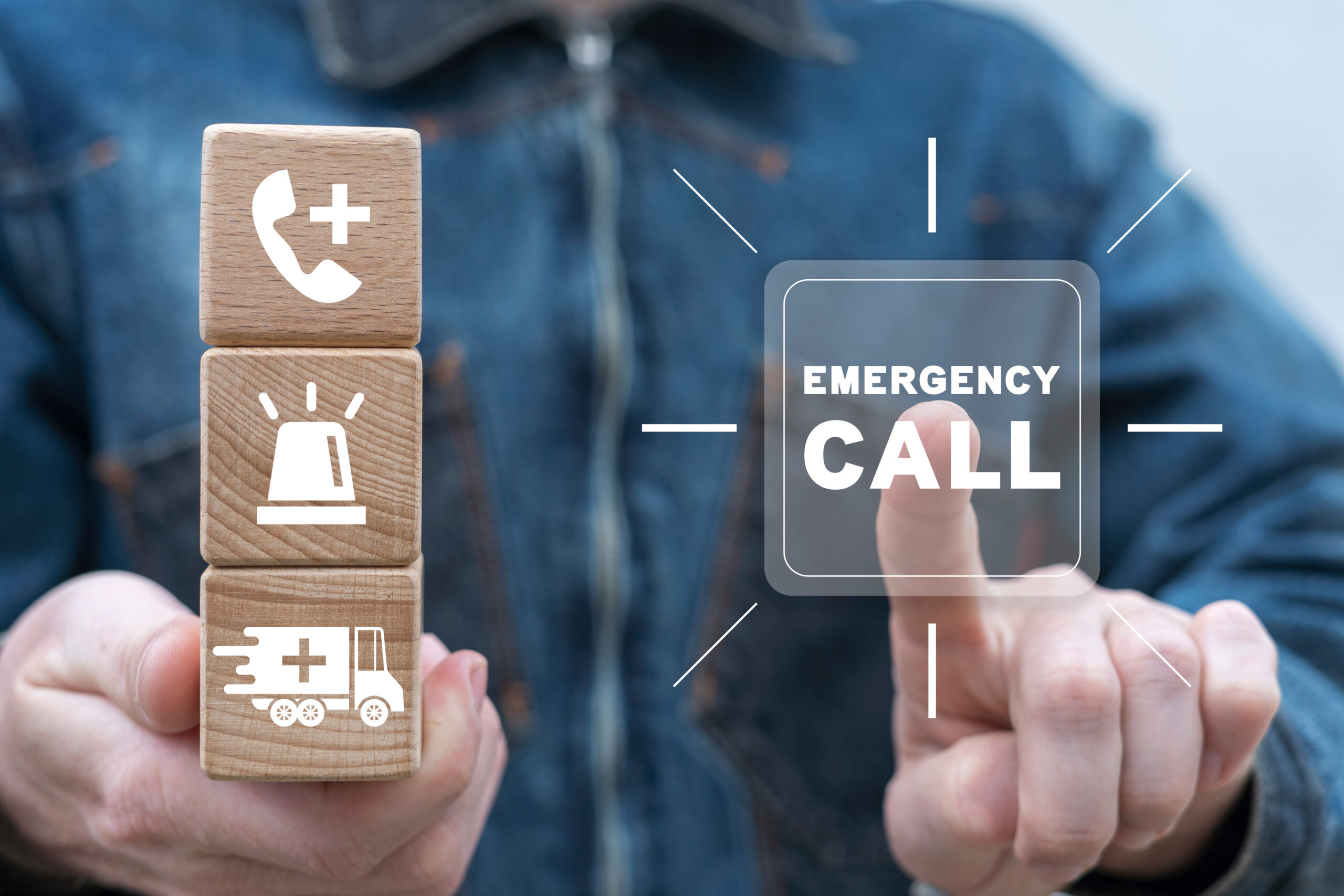
Common Over‑the‑Counter Medicines for Babies
Japanese pharmacies (e.g., Welcia, Matsumoto Kiyoshi) stock child-specific medicines such as acetaminophen syrup, fever cooling patches, and children’s cold remedy syrups, often labeled with cartoon characters to indicate toddler-appropriate formulas. Fever medications typically are only recommended for temperatures over 38.5℃. For minor symptoms, a pharmacist can help you choose the correct dosage—just ask, “10-month-old baby fever medicine, arimasu ka?” (“Do you have fever medicine for a 10-month-old?”). However, note that many familiar U.S. medications are restricted in Japan—so always verify rules for bringing medicines when entering the country.
With this foundational understanding of Japan’s child healthcare landscape, you can confidently manage both routine and urgent situations while ensuring your baby gets appropriate care.
Connecting with Other Expat Parents and Building a Support Network
Moving to Japan with a baby can feel isolating—but connecting with fellow expat parents and tapping into local support systems makes all the difference. This section covers how to find like-minded families, childcare options, and strategies to overcome language barriers.
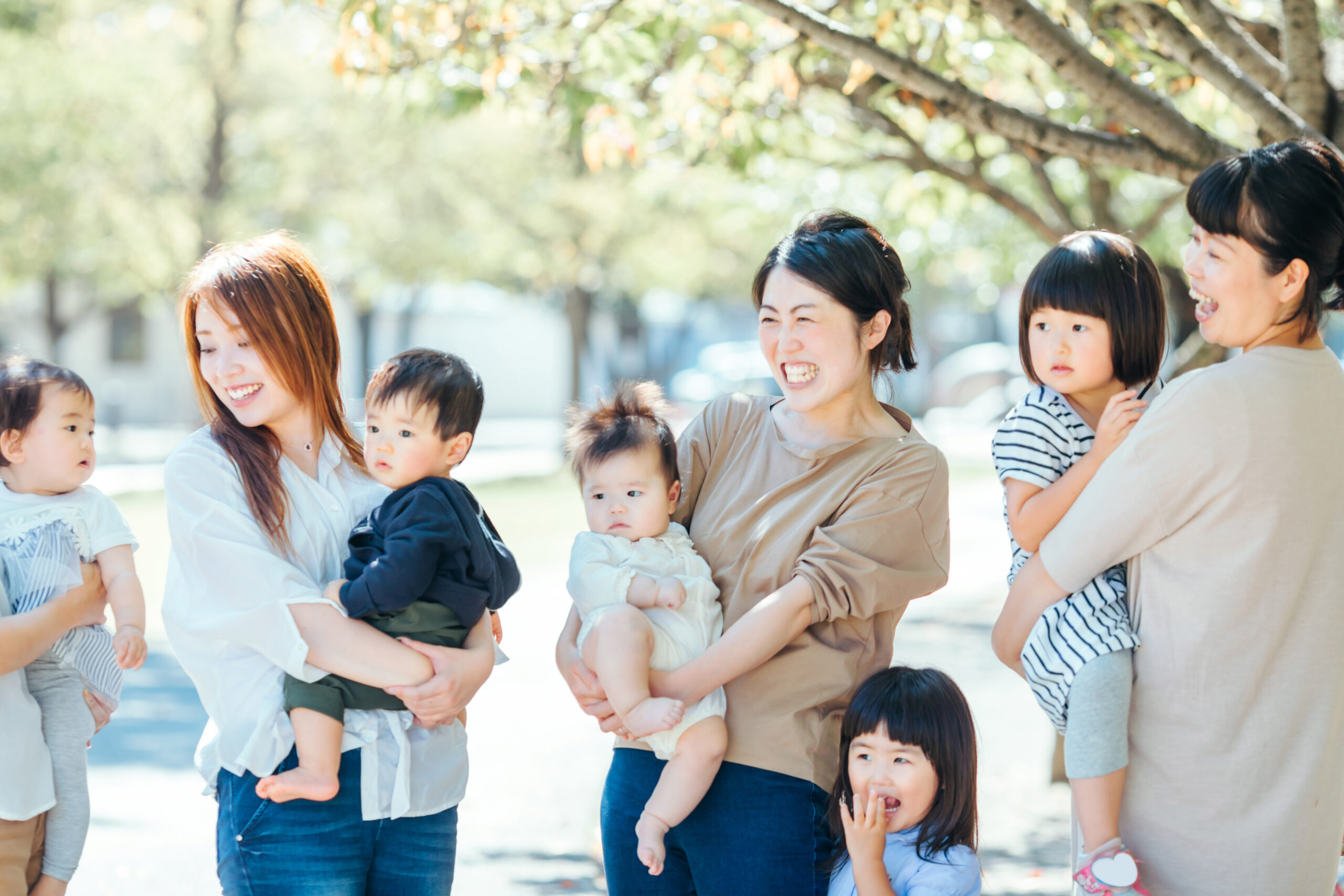
Joining Parenting Groups and Online Communities
For reliable and free support, Japan’s public facilities are the best place to start. Every municipality operates Child-Rearing Support Centers (子育て支援センター / Kosodate Shien Center) and Children’s Halls (児童館 / Jidōkan). These government-run facilities offer clean, safe, and free indoor play spaces where you can connect with other local parents and children. They often have staff available to offer parenting advice and may host free events like story time or craft sessions. While many centers allow for drop-in visits, some may require reservations to manage capacity, so it’s a good idea to check your local city or ward office’s website beforehand.
In addition to these public services, many international parents find valuable support through online communities. On social media platforms like Facebook, you can find numerous private groups for expat parents living in specific cities or across Japan. These online forums are a useful resource for asking questions in your native language, organizing informal playdates, and sharing tips on navigating daily life in Japan with a baby.
Childcare and Preschool Options
Japan has a well-established public childcare system. The primary options are licensed daycare centers (認可保育園 / Ninka Hoikuen) and unlicensed daycare centers (認可外保育園 / Ninka-gai Hoikuen).
- Licensed Daycare (Ninka Hoikuen): These facilities are supervised by the government and meet national standards for space, staffing, and safety. Fees are subsidized by the government and are based on family income. To enroll, you must apply directly to your local municipal office, which allocates spots based on a point system that prioritizes families with a higher need for childcare (e.g., both parents working full-time).
- International & Private Options: For families seeking an English-language or bilingual environment, there are numerous international preschools and private daycares. These are typically classified as “unlicensed” (Ninka-gai), meaning they operate independently of the government subsidy system. You apply directly to the school, and tuition fees are generally higher. While they don’t receive the same public funding, many of these schools maintain high educational and safety standards to attract families.
Finding the right fit depends on your family’s needs regarding language, budget, and the level of care required.
Overcoming the Language Barrier
While living in Japan without speaking Japanese is possible, learning the language will significantly enrich your experience and ease daily tasks. Fortunately, support is widely available and often inexpensive.
Nearly every city or ward has an International Association (国際交流協会 / Kokusai Kōryū Kyōkai) that offers free or low-cost Japanese language classes run by local volunteers. These classes are an excellent way to learn practical Japanese and connect with other foreign residents and Japanese locals in your community. To find these resources, visit your local municipal office (市役所 / Shiyakusho or 区役所 / Kuyakusho) or search online for its official website.
These government-supported programs are designed for residents and can help you handle everything from reading mail to making friends at the local park, providing a vital support network for your family.
Budgeting for Life in Japan with a Baby
Understanding the costs associated with raising a baby in Japan helps in planning your finances effectively. While daily expenses exist, Japan offers significant public support that can greatly reduce the financial burden on families.
Public Financial Support for Families
Japan provides robust financial support through two key national systems: healthcare subsidies and a monthly child allowance.
1. Healthcare Costs and Subsidies
Japan’s healthcare system ensures that medical costs for children are kept very low. It works in two stages:
- First, the National Health Insurance (NHI), which covers all residents, pays for 70-80% of total medical bills.
- Then, your local municipality provides an Infant Medical Care Certificate (乳幼児医療証 / Nyuyoji Iryosho). This certificate covers most or all of the remaining co-payment.
As a result, most medical visits and treatments for your child will either be completely free or require only a very small co-payment (e.g., ¥500 per visit). The specific terms, such as the age limit for the subsidy and the co-payment amount, vary by municipality, so you should confirm the details at your local city or ward office.
2. The National Child Allowance (児童手当 / Jido Teate)
In addition to healthcare support, the Japanese government provides a monthly cash payment to help with child-rearing costs. This Child Allowance is generally:
- ¥15,000 per month for children under 3 years old.
- ¥10,000 per month for children from age 3 up to junior high school. (Note: The allowance amount may be reduced for high-income households).
Average Costs for Baby Essentials
For your daily budget, here are some estimated monthly expenses for baby products:
- Diapers: Approximately ¥5,000 to ¥10,000. Popular brands like Merries or Goo.N are widely available.
- Baby Formula: If needed, expect to spend around ¥5,000 to ¥8,000.
Tips for Saving Money
- Shop at Budget-Friendly Stores: Retailers like Nishimatsuya, Akachan Honpo, and major drugstores offer competitive prices on baby supplies.
- Buy Secondhand: For items like clothing, toys, and baby gear, check out secondhand store chains such as Hard-Off or Book-Off Bazaar. This is a popular and eco-friendly way to save money.
- Utilize Bulk Shopping: If you have access, stores like Costco can offer savings on diapers and wipes.
Conclusion: Enjoying Japan Safely and Comfortably with Your Baby
Japan offers a remarkably safe, clean, and supportive environment for families with babies. Its world-class public facilities, including ubiquitous nursing rooms and accessible transportation, make daily logistics manageable. Furthermore, robust public support systems, such as subsidized healthcare and a national child allowance, provide significant financial peace of mind for residents.
By preparing thoughtfully and leveraging local resources like municipal child-rearing centers (jidōkan), you can navigate life in Japan with confidence. With this foundation, your family is well-equipped to enjoy a comfortable, enriching, and memorable experience exploring this beautiful country.
Frequently Asked Questions
Is Japan safe for traveling with a baby?
Yes, Japan is exceptionally safe for families. Its low crime rate, high standards of public cleanliness, and reliable infrastructure create a secure environment. You can feel confident navigating cities and using public transportation with your child.
Can I easily find baby formula and diapers in Japan?
Absolutely. Diapers, wipes, and formula from major Japanese brands are widely available at drugstores (like Matsumoto Kiyoshi), supermarkets, and specialty baby stores such as Nishimatsuya and Akachan Honpo across the country.
Do Japanese trains allow strollers?
Yes, strollers are permitted on trains, and most stations have elevators. To ensure a smooth journey, a lightweight, foldable stroller is recommended. It is also wise to avoid peak commuting hours (7–9 AM and 5–7 PM) when trains are most crowded.
Where can I rent baby gear in Japan?
You can conveniently rent strollers at major train stations and airports through services like Babycal, operated by JR East. Some hotels and local businesses also offer baby gear rentals, so it’s a good idea to check in advance.
What should I pack for my baby when visiting Japan?
Pack familiar essentials like medications, a baby carrier for crowded areas, and any specific formula your baby requires. While diapers and standard supplies are easy to buy, bringing a small supply for your first few days is helpful. If you plan to rent a car, consider bringing your own car seat.
